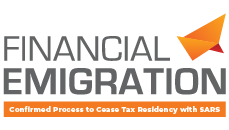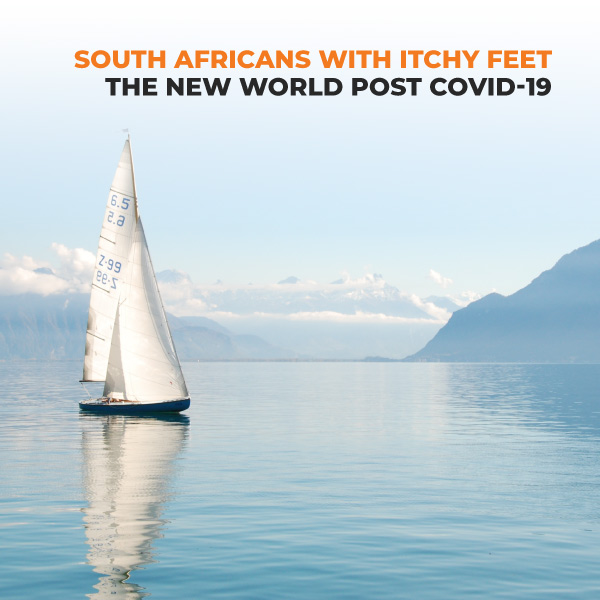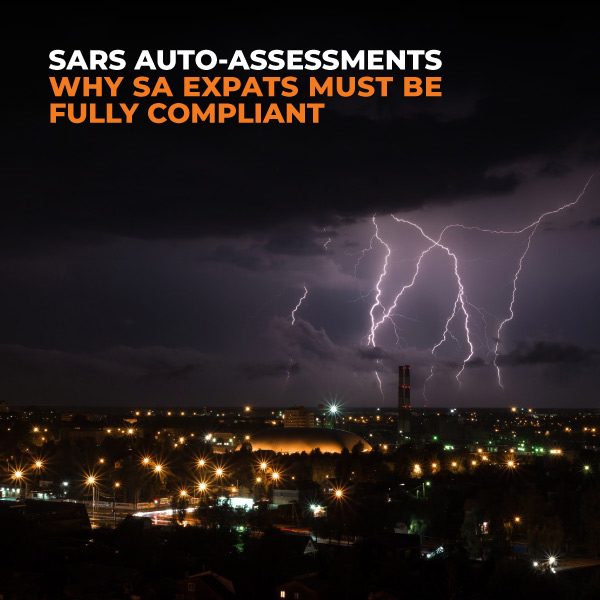THE ORGANISATION FOR ECONOMIC CO-OPERATION AND DEVELOPMENT IS CLEANING THE GLOBE
Looking at global statistics and for those following international news, it appears South Africans can be grateful for not being hit as hard as other countries by Covid-19; yet. In saying that, South Africa is unlike the United States and countries in Europe that are better equipped to shield its subjects from the ramifications of the pandemic, even if these countries face a much higher infection rate at this stage.
The questions on the minds of many are how our health and social system will handle the virus when the infection rate increases; what businesses will be left; what will the impact of new levels of unemployment have on our economy, and what will happen to the Rand which is now at an all-time low?
A Covid-19 wealth “tax” for South Africa?
The South African economy cannot really weather a crisis of this magnitude at this point and a major concern is how our government will keep things afloat. The government announced a massive economic and social package worth approximately R500 billion to fight the crisis. With an existing budget deficit, tax relief measures that will result in a further R70 billion revenue cost and an ailing economy, it begs the question how all of this will be funded.
A wealth tax was touted in recent years in South Africa; but seems to have lost steam. However, globally, there are now many countries calling on a once-off wealth tax to help fund the pandemic. We are relatively sure the discussion of a wealth tax will get back onto the table; taken the South African realities of the Covid-19 environment. This may become a central topic in the post pandemic recovery phase, where a wealth tax will be justifiable as would be using pension investments, as it comes down to a question of survival.
Migration fundamentals unchanged
The potential repercussions of the Covid-19 crisis may be a compelling reason on its own for those with itchy feet to leave South African shores permanently, but this is just one of many more that existed pre-Covid-19, which remain applicable (and maybe more so as the crisis unfolds). These include, the fact that expatriates have entered the era of taxation in South Africa on foreign earnings, the promise of more expatriate-centric revenue collection and the spiralling of the Rand against major global currencies.
The upshot is we do not expect a slow-down in the surge of South Africans leaving the country and doing financial emigration, despite the pandemic. These individuals must heed a couple of fundamental principles when choosing their new country of residence –
- Location, location, location
Looking at where to migrate is determined by many factors including how “easily” one could acquire permanent residency, for example.A foreign property ownership scheme is generally an accepted means to acquire permanent residency in many international locations. For instance, those who still want to go to the United States can qualify under a property investment scheme. Europe, the Mediterranean and the Middle East, amongst others, all have similar schemes available for individuals wanting to obtain permanent residence. Interestingly, South Africa has no such scheme to attract the affluent with their capital, which is perhaps something government will need to start looking at if it wants to be a participant in the game of other avenues of foreign investment.
Nevertheless, the question on where to relocate to when one has considerable assets, or the personal means to settle remains very much a personal one. Some like warm weather, some mild, others cold. The location of family wealth, however, requires a good look at the global rules on a different type of temperature – the fiscal compliance, desirability and ease of doing business in the foreign location.
- Neighbouring Countries
Access to South Africa is an important consideration for many, which makes some African countries an attractive alternative. Countries such as Namibia, Botswana, Kenya and Tanzania have some the continent’s fastest growing economies with stable political leadership and remain top choices to not only South Africans but also people all over the world.There is no public information available on how many South Africans are working or based in countries such as Zambia, Mozambique, DRC (on mines), Mauritius and Seychelles; but what we can see from daily practice that there are many and the numbers will probably be a shock to all if efforts are made to accurately determine them.
Nevertheless, African countries remain top picks based on the proximity and potential economic growth.
- Do not look at ‘dodgy’ countries
The importance of fiscal compliance is one which needs to be carefully considered by South Africans who are migrating to other countries or sending money offshore.The Organisation for Economic Co-Operation and Development (“OECD”) published an article on 6 April 2020 in which the Global Forum on Transparency and Exchange of Information for Tax Purposes (the “Global Forum”) released a report on the compliance ratings of eight jurisdictions based on the international standard on transparency and exchange of information on request (“EOIR”).
The jurisdictions were rated based on whether they were compliant, largely compliant, partially compliant, and non-compliant. Countries such as Brunei Darussalam, Macau (China) and Switzerland received a rating of largely complaint. Whereas Barbados and the Seychelles were downgraded from largely compliant to partially compliant.
As an example, the Seychelles has been frequently used by individuals across the globe to set up offshore companies and offshore bank accounts. It has been regarded as a tax haven and according to an article published in the Business Insider South Africa in November 2019, the Seychelles was ranked in the top 15 tax havens in the world.
The Seychelles had been blacklisted by the European Union (“EU”) in 2015 and was subsequently moved to the grey list after it committed itself to making tax reforms. However, with the recently downgraded rating to “partially compliant”, it is without surprise that the EU announced in February 2020, that the Seychelles were moved back onto the blacklist.
This means that Seychelles are probably good for holiday purposes, but not a good choice from a fiscal compliance perspective.
- What about Mauritius?
Mauritius is close to home, which is viewed by many as a considerable advantage. The 6 April 2020 update rated Mauritius as “compliant’, which means it falls in the same ‘box’ as France, Italy, New Zealand and Norway. In addition, the EU found Mauritius compliant with all its commitments and removed it from the EU list completely.Being a former tax haven, Mauritius has clearly seen itself making positive strides towards ensuring tax compliance of individuals. Unlike the Seychelles, it is no longer only good for a holiday, but it is potentially also good for business.
Planning during Covid-19
In light of the current economic landscape, deciding on where to send money offshore may be a foreign concept to entrepreneurs, ‘trust fund babies’ and anyone who has had to work incredibly hard for their wealth in South Africa. However, personal wealth is often the effect of life-long dedication and forward planning.
The same principles hold true for a South African tax resident who plans to send money offshore, start a company or make investments in another jurisdiction. They must be particularly weary and informed. Simply put, if one does not want to come across as inconspicuous, one would need to ensure that one is not sending funds to tax havens, blacklisted countries or lower rated jurisdictions.
Despite how inviting a jurisdiction may be, by settling or making investments in jurisdictions with partial or non-compliant statuses, one would open themselves to scrutiny and investigations by not only the South African Revenue Services (“SARS”) but potentially to financial intelligence units established in South Africa and internationally to combat financial crimes and tax evasion.
It is therefore imperative that when setting up shop or settling in foreign jurisdictions, individuals also look at other important factors such as the information and reports published like the one released by the Global Forum.



